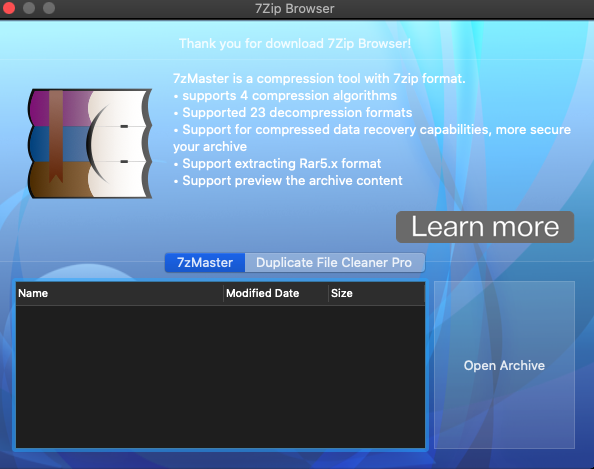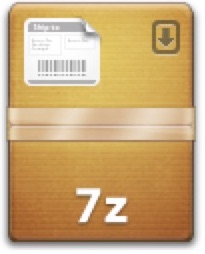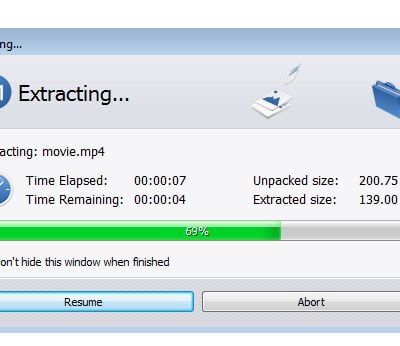

- #Open source 7z mac install
- #Open source 7z mac archive
- #Open source 7z mac registration
- #Open source 7z mac password
- #Open source 7z mac download
#Open source 7z mac archive
This information is an excerpt from the 7-Zip website.ħz is the new archive format, providing a high compression ratio. I find the man page to be the most accurate and helpful documentation available. My suggestion is always to consult the man page, which should provide the latest information. Not all documentation on the 7-Zip utility is the most up-to-date. $ tar -cf archive.tar archiveħ-Zip 16.02 : Copyright (c) 1999-2016 Igor Pavlov : Here is the interactive version for a directory named archive. $ 7z a -p -mhe=on directory.tar.7z directory.tar Generically, this is my archive and encrypt command: $ tar -cf directory.tar
#Open source 7z mac password
I don't supply any special compression switches, but I do turn on header encryption, and I always supply a strong password (encryption key) for each archive. The following example is my standard one for encrypting a tarball.

You should turn on data and header encryption (-mhe=on) so that no one can see your file list in the archive file before entering the password (key). You don't need any extra settings to obtain that encryption level. 7z format are encrypted with AES-256 encryption by default. This installs p7zip, p7zip-plugins, and p7zip-doc from the EPEL repository.
#Open source 7z mac download
I use the * to download every package related to 7-Zip.
#Open source 7z mac install
To grab the entire suite of 7-Zip plugins and documentation along with the main 7-Zip package, use the following command: # dnf install -y p7zip* Installationħ-Zip isn't a base product, so you'll have to install it. On Linux/Unix, in order to backup directories, you must use tar. On the man page for 7-Zip, you find the following warning:ĭO NOT USE the 7-Zip format for backup purposes on Linux/Unix because 7-zip does not store the owner/group of the file. While 7-Zip's encryption and compression features are good, its backup features are weak. Check the man page for more information on compression settings. There are several switches and configurations available to obtain different compression levels for your archives. But this article focuses on encryption rather than compression.

I think you'll like its many features, and I'm happy to bring this little gem to light, especially if you've never used it and you're looking for an encryption solution for your backups. It's likely that you've at least heard of 7-Zip somewhere in your travels because it's been around since 1999. It's licensed under the GNU LPGL and other licenses.
#Open source 7z mac registration
So on Xee I rolled back to 3.5.7-Zip is a free, open source, cross-platform compression and encryption utility that neither requires registration or any kind of payment to use, even in a commercial environment. Some pages show up as noise, where as other programs(like Comic Reader). I should mention Xee 3.5.3(marketed by the same company) inherited a bug in the new release, that it can no longer reliably read. Quit button disappears.) and the program hangs. Then somehow “The Unarchiver” memory gets corrupted, and the menus no longer work(e.g. BTW, there seems to be another bug that comes up if you select more than about 250 files from Finder and invoke “The Unarchiver”. So i am temporarily using command line tools to do the operations. Now, randomly I get a notofication about the encoding the compressed file uses. Before the last two versions, I could choose ‘Compress “some directory”’ from the finder menu, and then few minutes later I could uncompress it by using “The Unarchiver”. However there are more problems with version 3.11.3. Then they had a problem with 3.11.2, which they think they fixed in 3.11.3.

Until this version 3.1.2 it was a 5 star now maybe 4


 0 kommentar(er)
0 kommentar(er)
